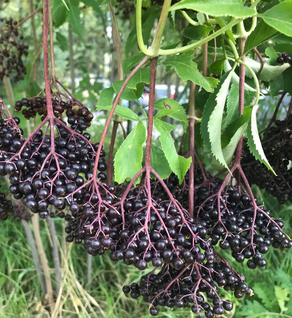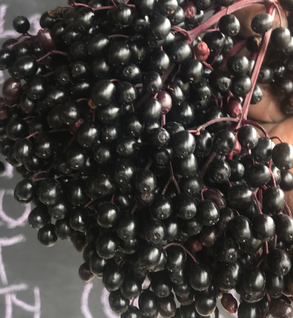SpiritWorks Herb Farm
Elderberry, Black - Sambucus nigra
Elderberry, Black - Sambucus nigra
Couldn't load pickup availability
If local, call in-season for fresh elderberries or year-round for frozen. Certified Organic with no chemicals used. Cultivated, harvested, and processed by hand.
Alternative names: Sweet-elder, pipe-tree, witch’s tree
Parts used: Fruits, leaves, and flowers
Actions and qualities: Immunity-boosting, antioxidant, antiviral, high in zinc and vitamin C, and a treatment for the symptoms of common cold. It works less as a preventative as widely believed, and more as symptom treatment once one has already come down sick.
Specific uses: Berries are commonly added dried to teas or capsules, or are used fresh in syrups, juices and jams.
Contraindications: The stems, seeds, roots and bark are highly toxic and should be avoided. Raw fruit can also be toxic and should be pasteurized before ingestion in large amounts. Seeds and stems should be strained out of such applications. Take first in small amounts to test that no negative reaction is had. Some allergic reactions have been reported. Pregnant and nursing mothers should consult a physician before use.
History and lore: It is believed one should always ask the spirits of the elders before harvesting from the tree, and if one feels an ‘intuitive no,’ no harvest should take place. The dried branches found on the ground are traditionally used to make flutes, due to their hollow nature, but it is important that the branch is fully dry. There are tales of flutists going crazy from putting their lips on the still toxic, undried branch.




